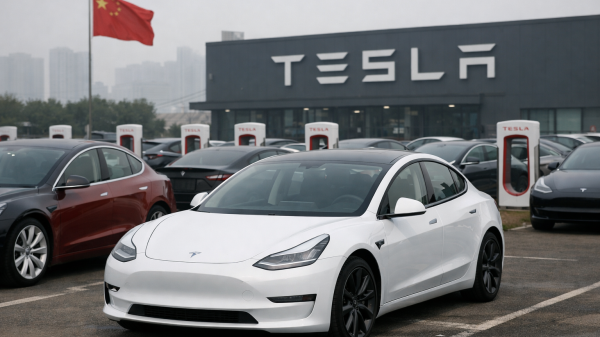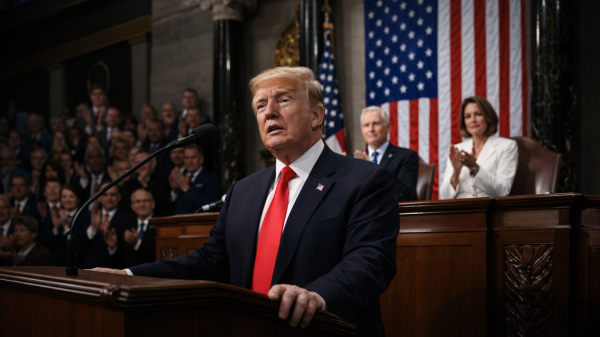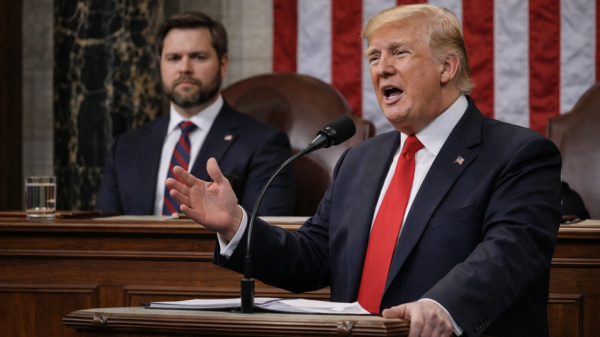Germany is preparing for an early federal election in February, following the unexpected collapse of Chancellor Olaf Scholz’s coalition government last Wednesday.
Initially, Scholz had indicated that elections would be held in March, with plans for a confidence vote in January.
According to sources from the Social Democratic Party (SPD) parliamentary group, reported by CNBC, the election is now expected to take place on February 23.
The confidence vote, an essential procedure before early elections can be called, is now scheduled for December 16.
The chancellor must first request this vote in parliament; if a majority of Bundestag members express no confidence in the chancellor, he can then recommend to the German president that the parliament be dissolved.
The president is then given 21 days to make a decision that would trigger an election, which must occur within 60 days of dissolution.
The president also holds the authority to set the final election date.
Scholz has been under significant pressure to expedite the election process.
Authorities have expressed concerns about logistical and organizational challenges if there isn’t sufficient preparation time ahead of the election.
Why did the SPD-Greens-FDP coalition collapse?
The coalition, consisting of Scholz’s SPD, the Greens, and the Free Democratic Party (FDP), disbanded after Scholz dismissed former Finance Minister Christian Lindner.
Jörg Kukies was appointed as the new finance minister on November 7, replacing Lindner.
The coalition breakup followed months of disagreements over budget and economic policies, cited as primary reasons for the rift. The timing and specifics of the 2025 budget remain uncertain.
Until the election, the SPD and the Greens will form a minority government. Scholz has expressed a desire to pass certain legislative measures before the end of his term.
Campaigning will soon take center stage.
Some parties have already selected their lead chancellor candidates, while others, including the SPD, have yet to do so.
Preliminary policy platforms have also been indicated by some parties to local media outlets.
How does Germany elect its chancellor?
Germany’s Basic Law outlines that elections should be “general, direct, free, equal, and secret.”
The system is described as “direct” because citizens vote for their parliamentary representatives without intermediary bodies.
Germany’s electoral process blends first-past-the-post voting for individual constituencies (first votes) with proportional representation based on party lists (second votes).
While voters do not directly choose the chancellor, their votes shape the composition of the Bundestag, which subsequently elects the chancellor.
Each voter casts two ballots: one for a local candidate and another for a state-level party list.
The first vote determines which candidates secure seats from constituencies, while the second vote decides the overall strength of parties in the Bundestag.
Half of the Bundestag’s members are elected from the 299 constituencies, while the other half are chosen via state party lists.
Constituency representatives are elected by a simple majority, while the second vote defines the distribution of seats among parties.
Bundestag seat allocation
Though the Bundestag typically consists of 598 seats, the number may expand due to “overhang” and “balance” seats.
For instance, after the 2017 election, the Bundestag comprised 709 seats to maintain proportional representation based on the second vote.
Parties must secure at least 5% of the second vote or win at least three constituency seats to gain representation.
This rule prevents a fragmented parliament with numerous minor parties.
The party’s total seats are influenced by the higher of the results from the first and second votes.
If a party wins more constituency seats than its share from the second vote entitles it to, it receives additional seats.
For example, if a party’s second vote yields 15 seats, but it wins 20 constituencies, it receives five extra seats in the Bundestag.
The post When will Germany hold its federal election? Key dates and more appeared first on Invezz




































